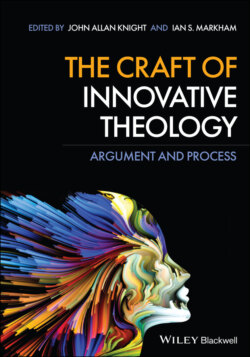Читать книгу The Craft of Innovative Theology - Группа авторов - Страница 39
RESEARCH LEVEL 1 Editors’ Introduction
ОглавлениеThis is a deliberately provocative article. The idea is simple: Could Jesus – the Incarnate Word – be someone else? Instead of being a first-century, Jewish male, could Jesus have been a first-century person with Down’s Syndrome? Now the question – could Jesus been something other than male? – has circulated in the scholarly literature. Feminist theologians have asked whether the Incarnate Word could have been a woman? This essay takes a familiar question and poses the question in a new way. The focus is on the question of the omniscience of Jesus.
The Christian claim is that Eternal Word became flesh in Jesus of Nazareth. It was a first-century Jew who became the definitive disclosure of God to humanity and the ultimate identification of God with humanity. In this essay, I wish to reflect on a conceptual question underpinning the Incarnation.1 What do we expect from an Incarnation? Krishna, the eighth avatar of Vishnu, has explicit self-knowledge of his status and in Hindu theology his beauty is a central characteristic of his divinity.2 Does the Incarnation require that the Eternal Word be a person who is exceptionally beautiful? Did God have other options beyond Jesus and what in Jesus is essential to the Incarnation and what is contingent? Was it possible for the Eternal Word to be expressed in a woman or in a person with special needs? The case that brings many of these questions together is a person with Down’s Syndrome. Is it possible for the Eternal Word to be made manifest in a person with Down’s Syndrome?
Down’s is a genetic condition, where a person has a full or partial additional copy of chromosome 21. The consequences are a lower IQ (often as much as half), certain distinctive characteristics (which include smaller stature and an upward slant to the eyes), and a disposition which is often humble, warm, and full of gratitude. A person with Down’s could easily reflect many of the most important features of God; for example, they can be very loving. But what about the other attributes of God – could God be disclosed in a person who is genetically unable to have a high IQ?
This essay will begin by thinking through the link between Christology and intelligence. Traditionally, it has been assumed that the Incarnate Word must be extremely intelligent – indeed omniscient. We will look at the traditional reasons for linking Christology with omniscience. Then we will consider and develop a distinction between “wisdom” and “omniscience” and suggest that the Wisdom of God does not require nor entail omniscience, nor even above average intelligence. This will lead us to two conclusions; the first is that God could have been incarnate in a person with Down’s Syndrome;3 and the second is that we are free to let Jesus be who Jesus was and not force him into a Christology model that does not honor the Biblical text (see Box 2.1).
Box 2.1
This is the article’s “signpost.” It gives the reader a sense of how the essay will be structured. There are many ways this question could be handled. The author sets out the focus is on intelligence. One could criticize the author for not seizing the opportunity to write more extensively on disability and the Incarnation.
